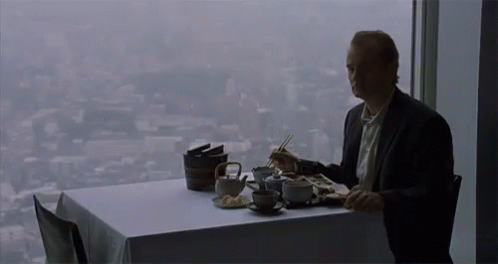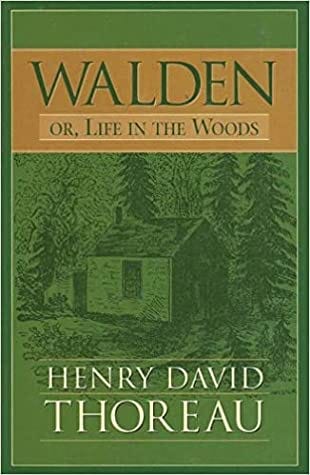Are you alone as you read this today? Are you feeling lonely? Is there a difference? The songs, film, and reading material we look at today might help you answer that question.
LISTEN
Some Soulful Solo Songs about Solitude to Savour
There’s nothing like a live performance to capture the raw solitude of a solo artist and their craft. Here are a few of my favourite solo singers singing songs that speculate upon the structure of solitude itself:
“Cradle” by Adrianne Lenker
Baby, you’re still too proud to come down
Maybe I’m still too loud to hear
All the waves ascend and disappear
With shimmering 12-string guitar in deft hands, Lenker considers her separation from the unnamed “other.” The tension pushes and pulls like the tide.
“Flume” by Bon Iver
This brings me back to my early college days when Justin Vernon was taking the indie music scene by storm with his cabin-conceived falsetto croons. Still don’t know what “gluey feathers on a flume” is all about, but his experience of solitude on the song and throughout the whole album is significant:
I am my mother’s only one
It’s enough
“Case of You” by Joni Mitchell
Oh, I am a lonely painter
I live in a box of paints
If Bon Iver singing “Flume” brought me back to my college days, Permament Ponytail Pick© Joni Mitchell singing this haunting ballad of lost love and loneliness brings me even further back, beyond my memories to a story I was never a part of but can feel in my blood—that’s how intoxicating and flawless this song and performance is (what’s with those weirdly placed biographical notes on this video though?! Sorry about that).
“Go Home” by Julien Baker
My heart breaks just a bit more with each chord of the piano progression in this devastating dive into Baker’s experience with depression.
I’m alone again, and I don’t like the things I see
Check in on your friends and family with mental illness! Listen, acknowledge, and support them in their pain. There are no easy answers, but there’s love, I know that much.
“I Won’t Be Found” by The Tallest Man On Earth
In a noisy world (both inside and outside our heads), sometimes it’s only in the solitude of sleep that we can find rest and relief.
When I hear your voices calling
I’m gonna turn just inside out
[and] if I ever get to slumber
Just like a mole deep in the ground
Hell, I won’t be found
Here’s to sleeping soft and warm so we can face another morn.
-JB
WATCH
A Film That Doesn’t Tell You How to Feel About Solitude
The Banshees of Inisherin
I didn’t know how to feel after watching The Banshees of Inisherin. At first, I didn’t even know if I liked it. It made me uncomfortable. Only a week later, I now see that as being to the film’s credit.
The story centres on a friendship, starting at the exact moment that it ends. Colm (Brendan Gleeson) a fiddle player and composer, starts avoiding his dairy farmer drinking buddy Pádraic (Collin Farrell). When finally cornered at the village pub, Colm tells his friend he “don’t wanna talk to [him] no more,” setting the tale in motion.
Despite the pastoral, Irish setting, things escalate much further than you initially expect. Yet, at its core, this is a quiet film, with a lot told through facial expressions and moments when the characters are alone.
The two central characters present two diverging responses to that solitude: Colm craves it; Pádraic does everything he can to avoid it. What Colm does to achieve his “peace” comes off as extreme, especially at first. But as the as the story unfolds, your opinion of Pádraic starts to sour as well.
So then, what’s to like, Andrew? you might be thinking.
For me, it came with time. The more I thought about the movie, the more its guts revealed themselves (a great conversation with my friend Simon helped, too). The dichotomy described above and its twin paradox—our need for independence vs. our need for community—show up all over the film, from the village's side characters to Pádraic’s idyllic sister, Siobhan1 (Kerry Condon). In the process, the story challenges our presumptions about both sides of the solo:group spectrum.
Since watching The Banshees, I’ve read a few other reviews of it, and a lot is being said about the movie being funny. In moments here and there, that’s true. But I wouldn’t go into this one expecting to walk away laughing. The emphasis is on tragic in this tragicomedy. I’d prepare yourself to think rather than giggle.
Available on Disney+
-AK
Looking for more pastoral imagery from the United Kingdom?
Check out the past posts below.
READ
An Example of How Not to Be Alone from a Cranky American Classic
Walden
I find it funny that Henry David Thoreau is so highly revered in American lit. Not because his writing sucks or his ideas seem dull or outdated—quite the opposite, actually. It’s funny because those ideas lie in such stark contrast to how life is normally lived in the U.S.A. (and Canada, too; no free pass here).
That contrast isn’t any clearer than it is in his most popular piece of writing, Walden. You can see it in the most popular quotes pulled from the book—you know, like this one:
“I went to the woods because I wished to live deliberately, to front only the essential facts of life, and see if I could not learn what it had to teach, and not, when I came to die, discover that I had not lived.”
After reading the first 100 pages or so, though (notice the admission there), it seems like that famous sentence mischaracterizes Walden a bit. If it’s the only line you hear, you rightfully assume the book to be full of stoic wisdom. In reality, Thoreau comes off more like a pompous grouch than a philosopher king.
Take this quote from the first essay, “Economy,” for example:
I sometimes try my acquaintances by such tests as this—who could wear a patch, or two extra seams only, over the knee? Most behaved as if they believed that their prospects for life would be ruined if they should do it. It would be easier for them to hobble to town with a broken leg than with a broken pantaloon.”
Funny? Sure. A little disingenuous? Definitely. Not to say he doesn’t make a good point here. Why are we so averse to repairing our clothes? But the quip highlights the main problem I have with Thoreau: his delivery.
In all 18 essays in Walden, Thoreau directs his criticisms outward. You get the feeling from the very beginning that he thinks he’s “above” his fellow Massachusettsans. The downward angle of his observations make it hard for him to notice his own blindspots.
And there are plenty. His handling of actual, financial poverty and slavery are particularly rough. The good writerly instinct in him tries to address the issue quickly. After calling for us to cast off all the unnecessary luxuries in life, he feels it necessary to direct his attention to people who don’t have them to discard.
But within a few sentences, he thinks it wise to compare the ongoing oppression of African slavery in the U.S. to the “keen and subtle masters that enslave both north and south.” This next line gets to me the most:
“It is hard to have a southern overseer; it is worse to have a northern one; but worst of all when you are the slave-driver yourself.”
Maybe in hell—the existence of which Thoreau didn’t believe in anyway—but otherwise: ??????????
Thoreau tries to sidestep the valid backlash by stating beforehand that he doesn’t intend to diminish the real pain and suffering of the poor and enslaved. But it’s hard to read the sentence above without feeling like he’s doing just that.
The point I’m getting isn’t to chuck Thoreau and his pond book out as old crap. But as we ponder (get it?) the way we handle solitude this week, I’d like to use Walden as an example of what not to do.
Like Thoreau, time spent alone often leads me to dwell on the frustrations I have with the world outside myself. Instead, I hope to spend that alone-time reflecting inward and reinforcing my empathy for others.
There’s still a lot to learn from this book. I feel the need to restate this. But when it comes to how we think while we’re alone, let me suggest another American literary figure as a guidepost with the video below2.
-AK
That’s all for this week. Next time, we’re going to skip all the preamble and head straight for
the ending.
pronounced “Chevanne”. You’re welcome.
Please excuse the cheesy acting, graphics, and “commencement” music. It was either this or the full 22-minute speech.








Banshees is my favorite movie of the year. And I think it's my favorite because it deals so starkly with loneliness and tragedy.